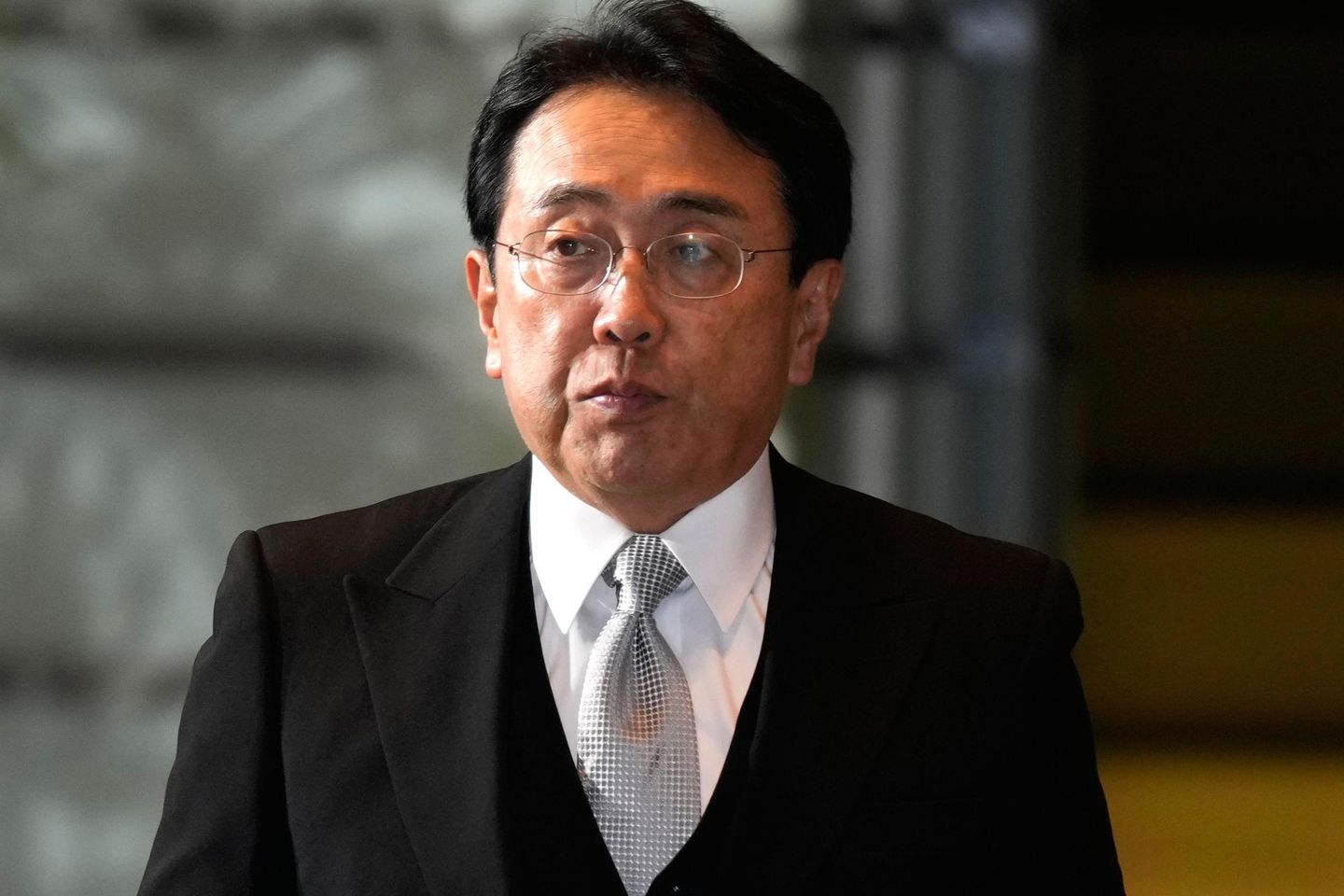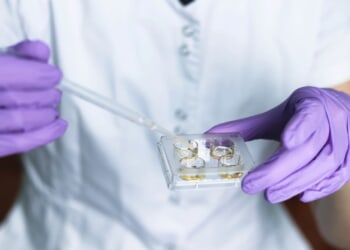
President Trump said Wednesday he met with a delegation from Japan to negotiate “trade fairness” as nations try to avoid the reimposition of hefty U.S. tariffs.
Japanese Economic Revitalization Minister Ryosei Akazawa is trying to stave off the return of a 24% tariff on his country’s exports to the U.S.
Those levies are on hold during a 90-day pause, though Japan still faces the 10% universal rate and Mr. Trump’s 25% duty on cars, which are the linchpin of Japan’s export economy.
Mr. Trump is taking a personal hand with Tokyo officials in meetings which also feature Treasury Secretary Scott Bessent, Commerce Secretary Howard Lutnick and U.S. Trade Representative Jamieson Greer.
“Hopefully something can be worked out which is good (GREAT!) for Japan and the USA!” Mr. Trump said on Truth Social.
Mr. Trump is seeking an early victory in his effort to use tariffs as leverage in his long-standing effort to reorder the global trade system in favor of the U.S. and its workers.
Mr. Trump is imposing the 10% blanket tariff on all imports but paused heftier levies on Japan and dozens of other nations to allow time for trade talks. China is the exception — it faces a 125% to 145% tariff on its goods because it retaliated against Mr. Trump’s plan.
Mr. Bessent has said there is a “first mover advantage” to countries that reach out to the U.S. for deals. Japan is out front among nations that chose to negotiate with Mr. Trump.
Mr. Trump says tariffs, a duty or tax on imports, and American spending power give him leverage to reduce trade barriers that harm U.S. producers.
Still, his plan is considered risky.
Federal Reserve Chairman Jerome H. Powell, speaking at the Economic Club of Chicago on Wednesday, said the central bank could be caught between controlling inflation and spurring economic growth due to tariffs and other economic policies.
“If that were to occur, we would consider how far the economy is from each goal, and the potentially different time horizons over which those respective gaps would be anticipated to close,” Mr. Powell said.
Mr. Powell said the economy remains strong overall, though growth appeared to slow in the first quarter “from last year’s solid pace.”
There has been a decline in consumer sentiment, he said, and uncertainty in the economic outlook “largely reflecting trade policy concerns.”
He said the Fed would proceed carefully as it considers rate cuts this year and fulfills its twin mandate of maximum employment and stable prices.
“As that great Chicagoan, Ferris Bueller, once noted, life moves pretty fast,” he said. “For the time being, we are well-positioned to wait for greater clarity before considering any adjustments to our policy stance.”
Wall Street markets are on a roller coaster ride as investors assess the potential fallout from Mr. Trump’s plans.
The Dow Jones Industrial Average dropped nearly 700 points, or 1.7%, on Wednesday while the S&P 500 and Nasdaq fell 2.2% and 3%, respectively, because of a tech-related sell-off.
Japanese Prime Minister Shigeru Ishiba said Monday that his country won’t rush to make a deal and doesn’t plan to make large concessions to the U.S. Still, he ruled out countermeasures to the U.S. tariffs.
Mr. Trump has long complained about the U.S. trade deficit with Japan and other countries, alleging that U.S. businesses have been disadvantaged by trade practices and other efforts by other countries to maintain weak currencies. Tokyo has denied that it manipulates its currency to gain advantages.
Mr. Bessent met with Vietnam’s deputy prime minister last week to discuss trade and invited South Korea’s finance minister to Washington for talks next week.
Italian Prime Minister Giorgia Meloni will meet with Mr. Trump at the White House on Thursday to discuss tariffs imposed on the European Union. Mr. Trump and Ms. Meloni have a good relationship, so she is being seen as a key trade liaison for the EU.
Italy was not spared from the Trump tariff plan, facing a general 20% tariff along with other European Union countries.
Ms. Meloni said the tariffs were “wrong” but said she would work to avoid a trade war.




![Jasmine Crockett Justifies Mass Illegal Immigration With Bizarre Argument [WATCH]](https://www.right2024.com/wp-content/uploads/2025/03/1742007023_Jasmine-Crockett-Justifies-Mass-Illegal-Immigration-With-Bizarre-Argument-WATCH-350x250.jpg)
![Red Sox Fan Makes the ‘Catch of the Day’ with Unconventional ‘Glove’ [WATCH]](https://www.right2024.com/wp-content/uploads/2025/04/Red-Sox-Fan-Makes-the-‘Catch-of-the-Day-with-350x250.jpg)

![NYC Tourist Helicopter Falls into Hudson River, Siemens Executive and Family Among Those Killed [WATCH]](https://www.right2024.com/wp-content/uploads/2025/04/NYC-Tourist-Helicopter-Falls-into-Hudson-River-Siemens-Executive-and-350x250.jpg)








